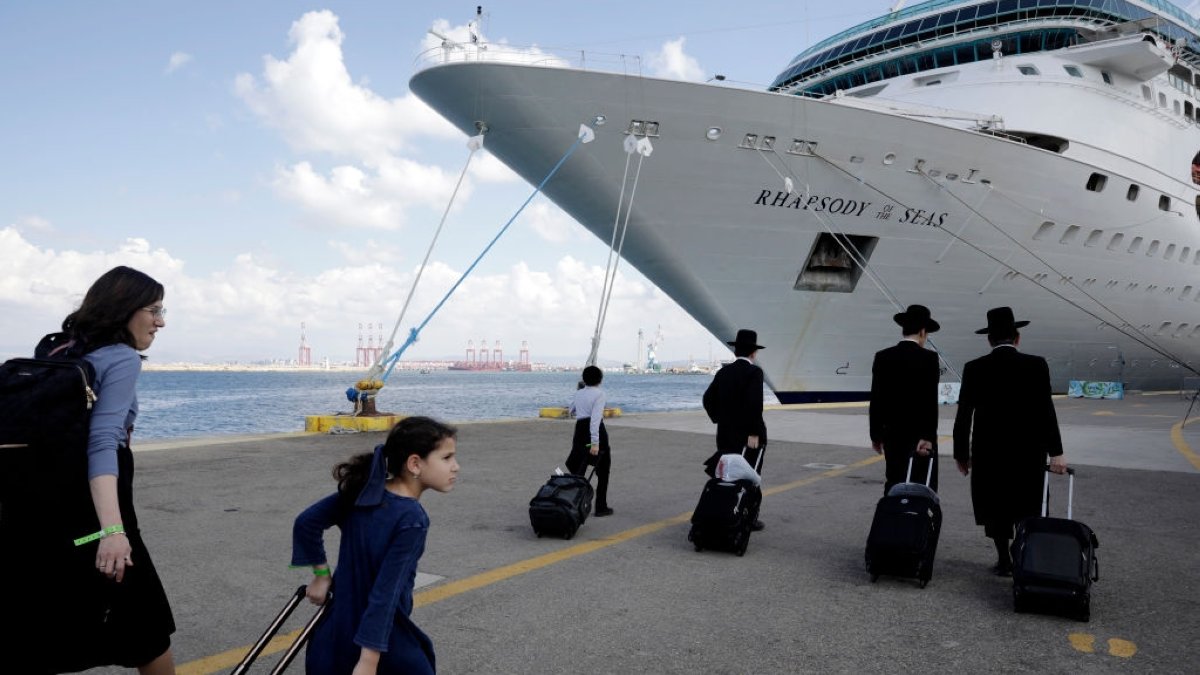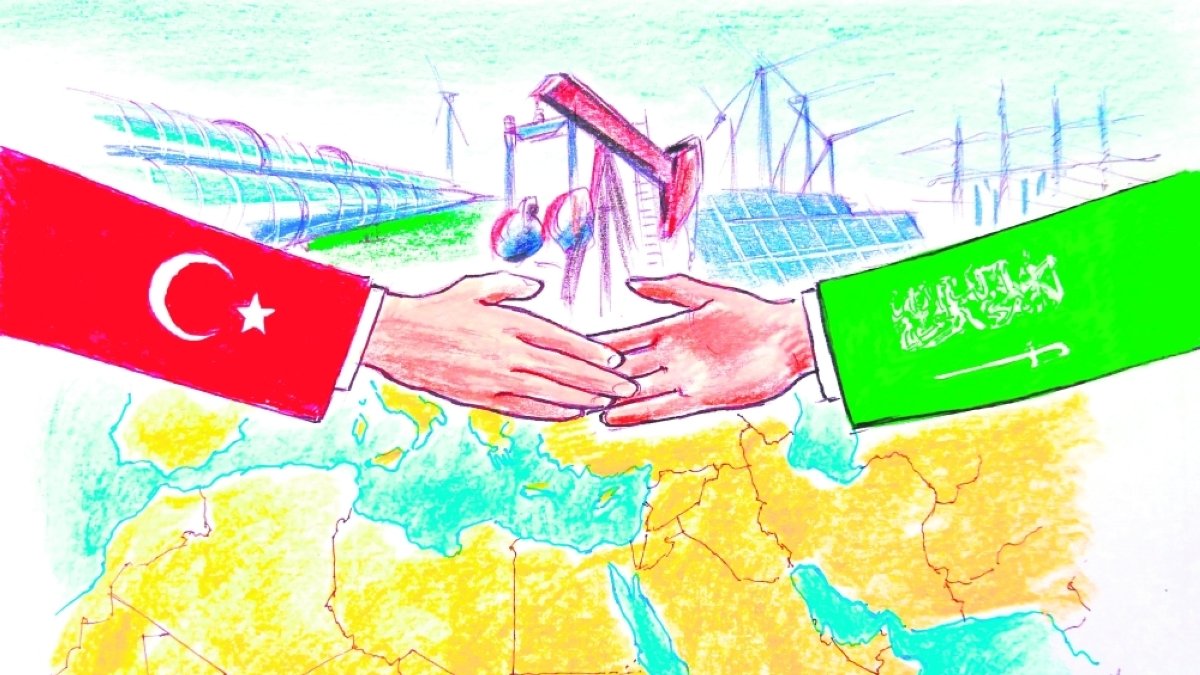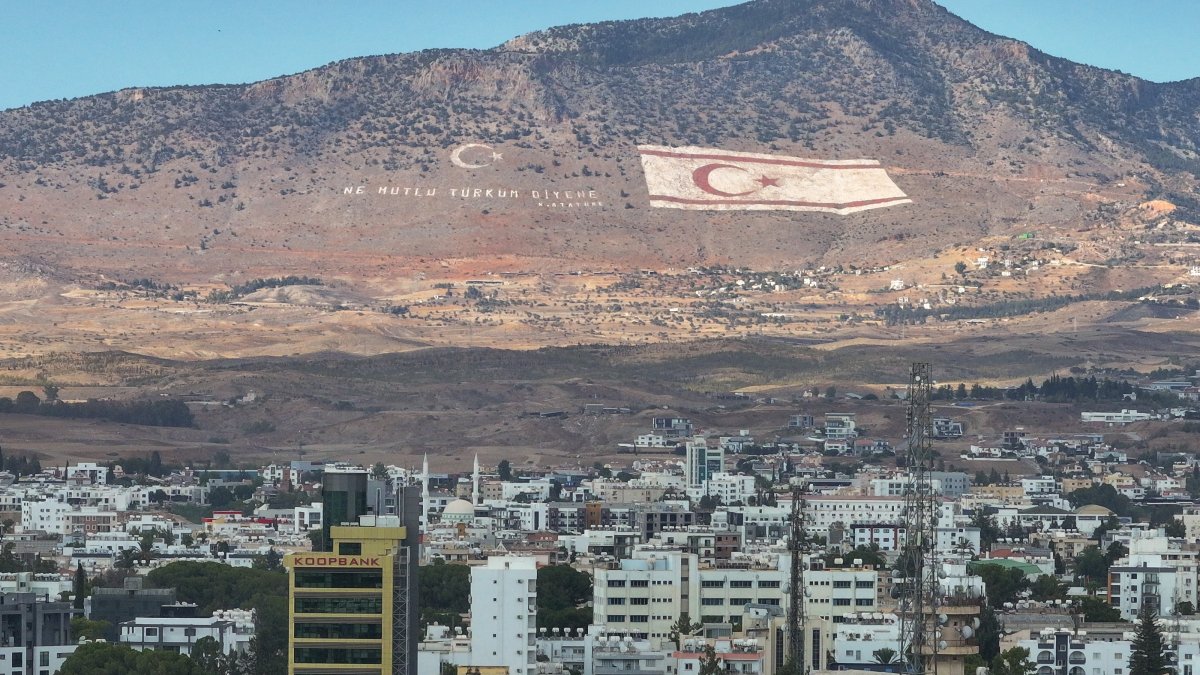Israeli-Greek ties: Growing shadow of Zionist colonialism in Cyprus
Source: DAILYSABAH
The history of the Cyprus dispute goes back to the early 1960s, when the Greek Cypriots started to gradually erode the constitutional rights of the Turkish community of the Island. The eventual Greece-baked coup in Cyprus aimed at annexation of the island by Greece led to Türkiye’s intervention in 1974, as a guarantor power to protect Turkish Cypriots from persecution and violence.
After constant failures to reach a political settlement, the Turkish Republic of Northern Cyprus (TRNC) was founded in 1983. The Greek Cypriot administration entered the EU as a full member in 2004, the same year that Greek Cypriots single-handedly blocked a U.N. plan to end the dispute. It has seen an on-and-off peace process in the following years, including a failed 2017 initiative in Switzerland under the auspices of guarantor countries Türkiye, Greece and the United Kingdom.
The deteriorating relations between Türkiye and Israel due to the Israeli inhumane attacks on the population of Gaza since Oct. 7 seem to have an impact on the Cyprus dispute. One of the disturbing signs of Israeli attempts to harass Türkiye appears within the context of the Cyprus dispute, which is, in fact, between Greeks and Turks.
Israeli-Greek Cypriot military ties
There have been rumors since Oct. 7 that Israel has been approaching Greek Cypriots to establish a presence on the Island at the expense of Turkish disturbance. That comes when Türkiye and Turkish Cypriots insist on a two-state solution in Cyprus. That seems to have come at a difficult time for Cypriot Greeks, who were furiously expecting support from an outsider like Israel, which is now considered “an enemy” of Türkiye.
The Israeli support for the Greek Cypriots follows the U.S. support, which began amid fluctuating relations between Türkiye and the U.S. The “Bilateral Defense Cooperation Road Map Agreement” was signed between the U.S. and the Greek Cypriot administration on Sept. 10, 2024. In a joint statement, the parties stated that the agreement is “vital to the overall stability and security of Europe and the Eastern Mediterranean. The complexity and evolving nature of security challenges in this region necessitate vigilance, engagement and close cooperation among like-minded partners on defense and security matters to ensure peace, stability, democratic principles and the rule of law.”
Efforts to deepen defense and energy cooperation between the Greek Cypriot administration and the U.S. drew criticism from Türkiye. The U.S. support for the Greek Cypriot side, including lifting the arms embargo without considering the balance between Türkiye and Greece, attracted a Turkish reaction.
During the same period of late 2024, press reports emerged that the Greek Cypriot administration was attempting to incorporate Israel’s air defense system into its defense. Addressing the issue on Dec. 11, 2024, Foreign Minister Hakan Fidan warned that, “The arming of the Greek Cypriot administration of southern Cyprus could trigger a new arms race on the island.”
At that time, Israel initiated a move to provide advanced military systems, such as the Barak MX air defense network, along with access to the Greek Cypriot administration’s military infrastructure. The Barak MX, an integrated and layered air defense (AD) system, offers Israel several advantages. First, Barak MX provides anti-air coverage over a large area, directly threatening Turkish aircraft, helicopters and drones over and around the island of Cyprus. Second and more importantly, the ELM-2084 radar used by the Barak MX (or any other early-warning radar that is integrated into it) will perform as a long-range surveillance and intelligence collection asset for the Greek Cypriot administration, for Greece and obviously for Israel. When deployed in the south of the island, the ELM-2084 radar is capable of covering all of the Eastern Mediterranean, from Aksaz to Iskenderun.
Zionist expansion to Cyprus
Beyond that, the increasing number of Israeli citizens acquiring property and residence rights in the Greek Cypriot administration establishes a new form of influence over Cyprus. In recent years, a growing number of Israeli citizens have gained golden visas through investments. The numbers are said to be around 20,000.
Moreover, Israel’s preference is for monetizing gas via Greek Cypriot or Greek routes, whether through the EastMed pipeline or electricity interconnectors. Ankara views these developments as an energy-security challenge. The Israeli-Greek Cypriot coordination, backed by the U.S., not only contests the Blue Homeland doctrine but also undermines Türkiye’s role as an energy hub in Eurasian transit.
Similar military procurements and non-military attempts to establish influence on the island are regarded as a sign of a shift from temporary cooperation to long-term strategic structuring. These developments certainly have the potential of turning Cyprus into an issue not only between Turks and Greeks but also Jews. As Israel allies with the Greek Cypriots against the Turks and Türkiye, this would provide Israel with geopolitical depth, military-technological interoperability, and economic and energy leverage on the island.
There have been concrete signs of this. Israel is said to have used the island for military purposes during its attack on Iran. It is also noted that airports in the southern part are actively employed by Israeli intelligence and used by Israeli military aircraft over these facilities.
The way in which the increasing influence of Israel on the Greek Cypriots is perceived by the Greeks on the island is also an important issue to consider. It definitely creates some concerns among some Greeks. In fact, the main opposition party, the Progressive Party of Working People (AKEL) leader Stefanos Stefanou, described the situation as a planned settlement strategy and warned that “Greek Cyprus” is slipping away. Furthermore, AKEL has not hesitated to describe the current situation in the Greek Cypriot administration as a new country occupied by Israel. A dispute over the Aphrodite gas field between Israel and the Greek Cypriot administration already exists, which has the potential to flare up. Tel Aviv’s claim that the block containing the Aphrodite field overlaps with its jurisdiction exposes the fragility of the bilateral agreements.
In any case, Greek Cypriots and Israel are in deep collaboration more than ever, based on the perception that the enemy of my enemy is my friend. As Türkiye has taken a tough stance against Israel due to the genocide it commits in Gaza, Israel has turned to the Greeks on the island, who have been waiting for such an “ally” to counter Türkiye and the Turks on the island. It appears that both sides are collaborating based on their shared animosity toward Türkiye. However, it remains to be seen whether the southern part of Cyprus will become a “colony” of Israel, right before the eyes of the Greek Cypriots, who are nearly blinded by their hatred of Türkiye.
The original article: belongs to DAILYSABAH .


